🚩 Get 4 months extra on a 2 year plan here: https://nordvpn.com/historymarchevpn. It’s risk free with Nord’s 30 day money-back guarantee!
🚩 If you like what you see, consider supporting my work on Patreon and you get ad-free early access to my videos for as little as $1 https://www.patreon.com/historymarche — You can also show your support by subscribing to the channel and liking the video. Thank you for watching.
📢 Narrated by David McCallion
🎼 Music:
EpidemicSound
Filmstro
📚 Sources:
Caesar: the Conquest of Gaul (1982), Translated by S. A. Handford. Published by Penguin Books.
Caesar: the Life of a Colossus (2010), by Adrian Goldsworthy. Published by Phoenix.
Alesia 52 BC: the Final Struggle for Gaul (Campaign Book 269) (2014), by Nic Fields. Osprey Publishing Ltd.
Corrections:
2:33 To clarify, I’m not depicting Indutiomarus as defeated here. He revolted around the same time as Ambiorix, but withdrew from Labienus’ camp when he heard of Ambiorix’s defeat. Indutiomarus later confronted Labienus’ legion where he was killed. But since I only depicted the opening of the revolt of 53BC and not its entirety, I only had him withdraw at this point.
3:56 Goldsworthy writes (p.376) that Caesar held a council with the Gallic leaders at Durocortorum (modern Reims) “[at] the end of the campaigning season,” so I put ‘Late 53 BC’ as the season generally ended in Autumn (Sep-Nov). It was here that the chieftain Acco was publicly flogged and then executed as the instigator of the trouble among the Senones and Carnutes (which Caesar had temporarily ‘let go’ earlier in the year).
5:52 After the Council at Reims, Caesar writes (p. 154) that he divided his legions in the following way: He had two positioned on the frontier of the Treveri; Two among the Lingones; And finally six at Agedincum (with the Senones).
9:32 Caesar intervenes in Narbo. Goldsworthy writes (P. 387) that Caesar had no legions nearby but had a few “locally raised cohorts” and a few drafts from Cisalpine Gaul, as well as cavalry raised from the area. I gave Caesar an infantry block and a cavalry block here.
10:41 For the political map here I worked off of, primarily, Ceasar’s list (P.156). The Belgae territory and the lands where the legions were wintering were not participating in the revolt yet. The Parisii definitely were, as were the Carnutes and Senones. I included the Veneti and Osismi (Brittany) on the basis of Caesar writing “all of the west coast” which I assume includes the northern part too. I left out the tribes of the Normandy and Flanders regions.
17:39 Before the main attack on Gergovia, Caesar writes that he sent both some cavalry and then a legion to demonstrate for the Gauls in the hills. He does not mention this single legion as involved in his covering force as the main body withdrew. Goldsworthy doesn’t write anything on this either. So I just have these blocks slowly withdraw after the battle.
19:03 Movements of the Aedui in the final attack are based on both Caesar and Goldsworthy. Caesar writes (P. 178) that he sent the Aedui “up the hill by another route on the right”, likely up the same hill but separated from the main body. Goldsworthy (P. 401) writes as much with “…the Aedui [going] up the opposite side of the same spur.” Goldsworthy explains that the terrain was uneven and the legions couldn’t see the Aedui, which explains why – even though the Aedui were nearby – the legions were shocked at their sudden appearance on the right.
19:55 Political map, expansion of the rebellion post-Gergovia. Caesar and Goldsworthy both state that pretty much all of the Gallic and Belgae tribes joined the rebellion after the Aedui defected. The Aedui sent ambassadors after the battle and Noviodunum to push for this. Caesar himself (P. 186) writes that a great council was held at Bibracte and that only the Remi, the Lingones and the Treveri didn’t join the revolt. This corroborates with what Goldsworthy writes (P. 404) that most of the Gallic and Belgae tribes then joined the rebellion, which would be true as the Lingones and Treveri were classed as Gallic or part of Celtica, and the Remi were a Belgic tribe. I therefore reflected this in the political map between Gergovia and Alesia.
27:47 Goldsworthy (P. 410) writes that this attack begun around midnight. He also writes the Gauls let out great cheers to alert Vercingetorix of their arrival.
33:08 I realise that Caesar writes that he received Vercingetorix’s surrender outside of the fortifications, though this is still pretty vague as to exactly where, but I had him placed at the bottom between the walls as this just seemed a natural place to fit all the icons into and show the event of him riding around Caesar and then being arrested.
#caesar #rome #history
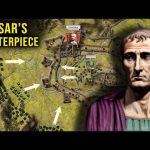
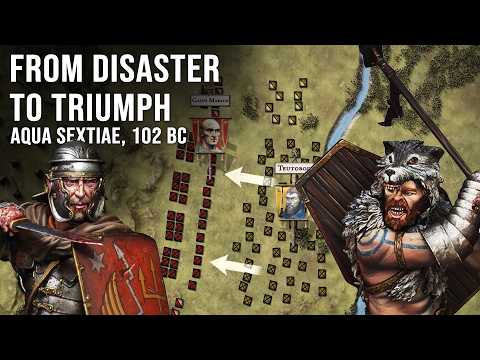
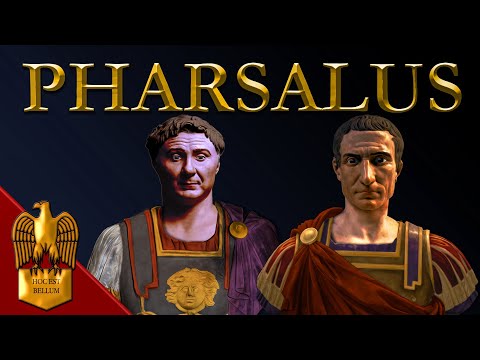
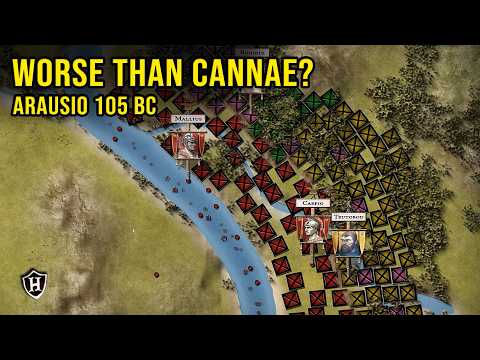
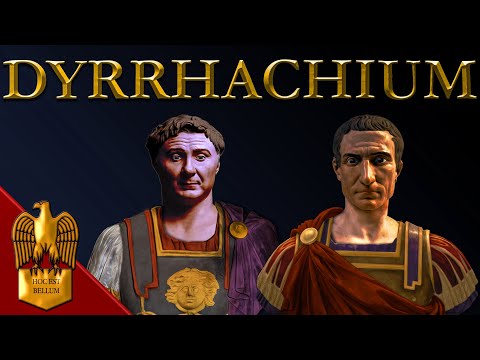
Leave a Reply